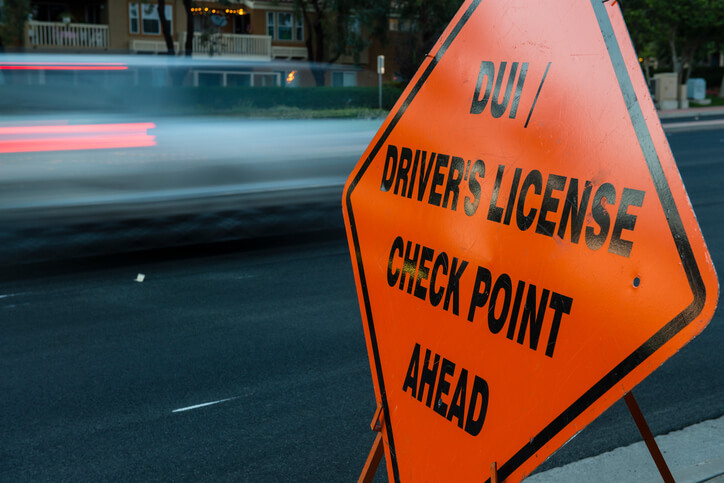
DUI Checkpoints in Gainesville, FL
Encountering a DUI checkpoint can create anxiety for motorists, even when they are driving sober. In order to ensure that your rights are protected, it is important to understand DUI checkpoints and how you should act if you find yourself approaching a checkpoint. If you are arrested and charged for driving while intoxicated, Stout Defense, P.A. can provide you with a Gainesville DUI lawyer you can trust.
What are DUI Checkpoints?
DUI checkpoints are traffic stops set up by the police that are not related to any specific or individual suspicions. The reason for these checkpoints is to try and detain any intoxicated drivers in order to keep the roads safe. The locations chosen for DUI checkpoints are temporary, and while they are considered “random,” they are usually placed in high-traffic areas near highways or in areas with an active nightlife.
During DUI checkpoints, drivers are briefly stopped and asked a couple of questions. If an officer has reason to find a driver suspicious of drinking and driving, he or she may be subject to sobriety tests. In Florida, DUI checkpoints have been deemed legal and constitutional.
Your Rights During a DUI Checkpoint
As with any normal traffic stop, it is important to remember that during a DUI checkpoint you have rights that you can exercise. In Florida, there is a three minute rule set in place with traffic checkpoints. This means that any vehicle that enters the designated checkpoint cannot be detained for more than three minutes. If the stop takes longer than three minutes, the police have to temporarily suspend the diversion of vehicles or stop only selected vehicles until the stops fall under the three minute mark again.
The police must also publicly post the date and location of scheduled DUI checkpoints. If you get pulled over for a checkpoint, you must present your license and registration when requested. The police may then begin asking you questions which you may politely decline to answer without your criminal defense lawyer present. However, if you are asked to step out of your vehicle, you must comply.
Common Questions About DUI Checkpoints
- Can I turn around when I see a checkpoint? While you are allowed to turn around before entering a checkpoint, it is important to note that officers are often looking for such maneuvers. If no law is being broken and there is no probable cause, it is technically against the law to be stopped and questioned for such an action. However, police may detain you for speeding, unsafe lane changing, swerving, illegal u-turns, or any other violation.
- Can I keep my windows rolled up while displaying my license and registration? It is highly advised to cooperate with the officers and not maintain your windows rolled up, as it could be seen as a sign of guilt by the officers.
- Can I deny a search? If an officer asks to search your vehicle during a checkpoint, you have the right to deny consent to any searches. If you are asked to step out of your vehicle, be sure to close the door behind you.
- Can I deny a sobriety test? In the state of Florida, you have the right to deny a sobriety or breathalyzer test and request to speak with a DUI defense attorney. However, there could be consequences if you refuse to take sobriety test. If an officer believes he has probable cause to indicate you are impaired, and you refuse to take a sobriety test, you can still be arrested for DUI. If you refuse to take a breathalyzer test, your driver’s license will be suspended for a period of at least one year.
DUI Attorney in Gainesville, FL
If you are arrested or charged with a DUI, it is important to remain calm and remember your rights. While you should be polite and must comply with the officer, it is highly advised that you do not answer any questions until you have spoken with your lawyer as such statements could be used against you. An attorney has the necessary knowledge and experience to build a strong defense for you and provide you with the legal guidance that you need. Contact Stout Defense, P.A., today for a Gainesville criminal lawyer you can count on.
